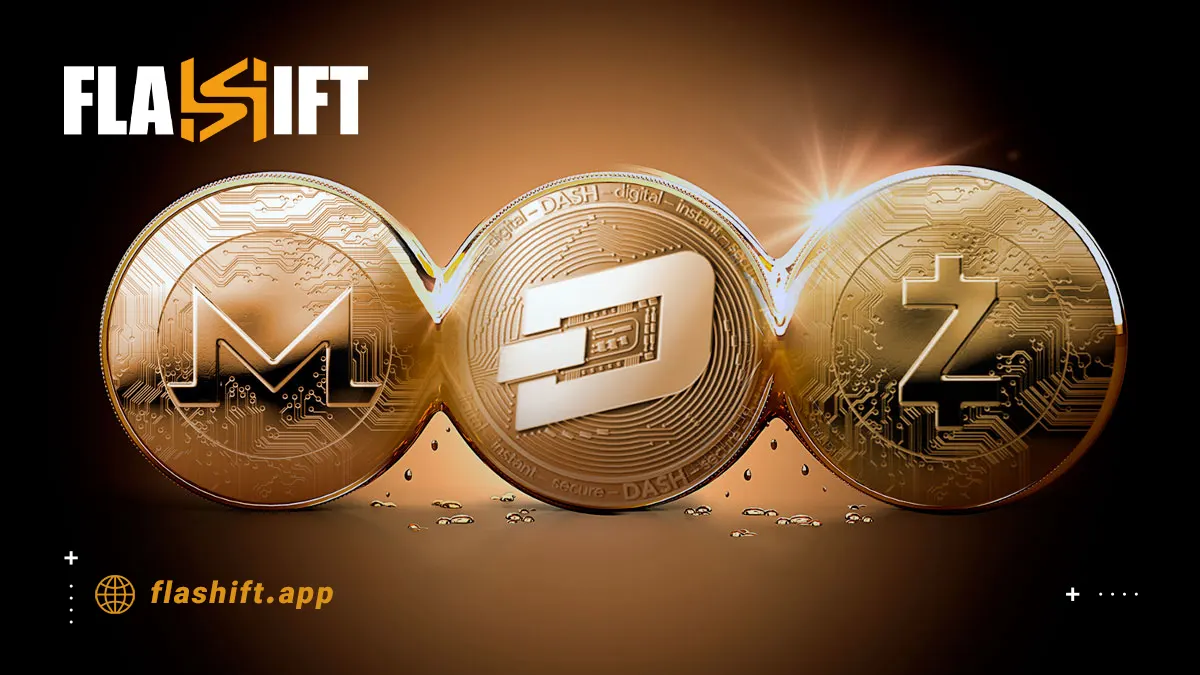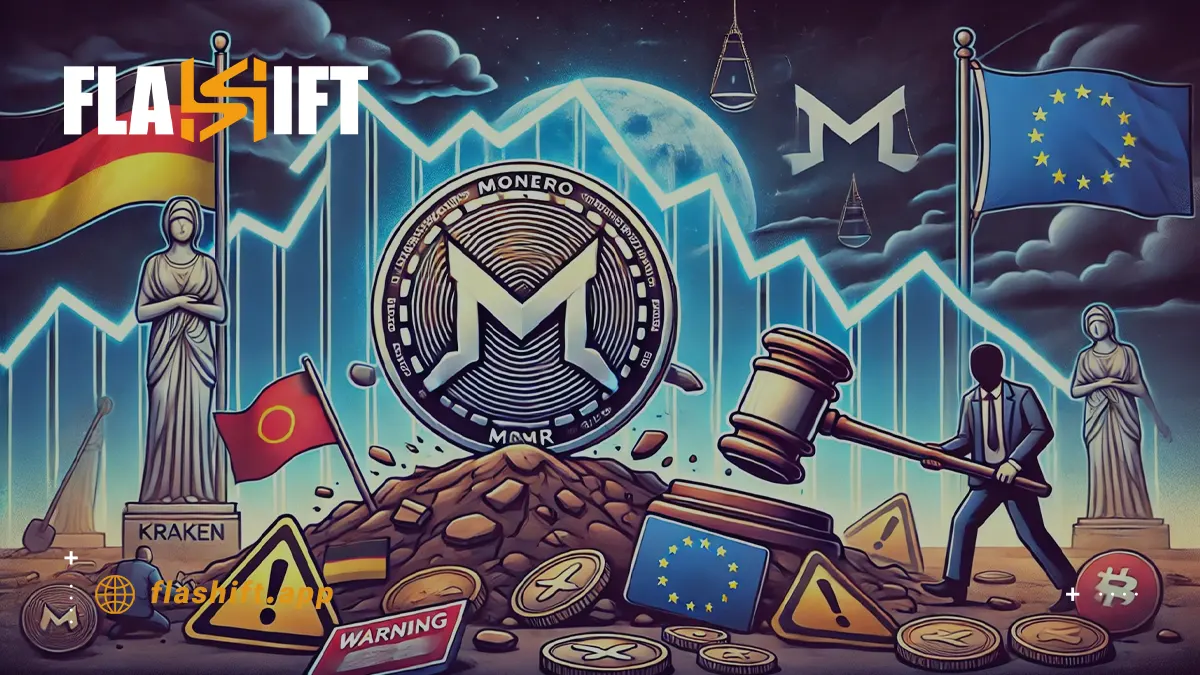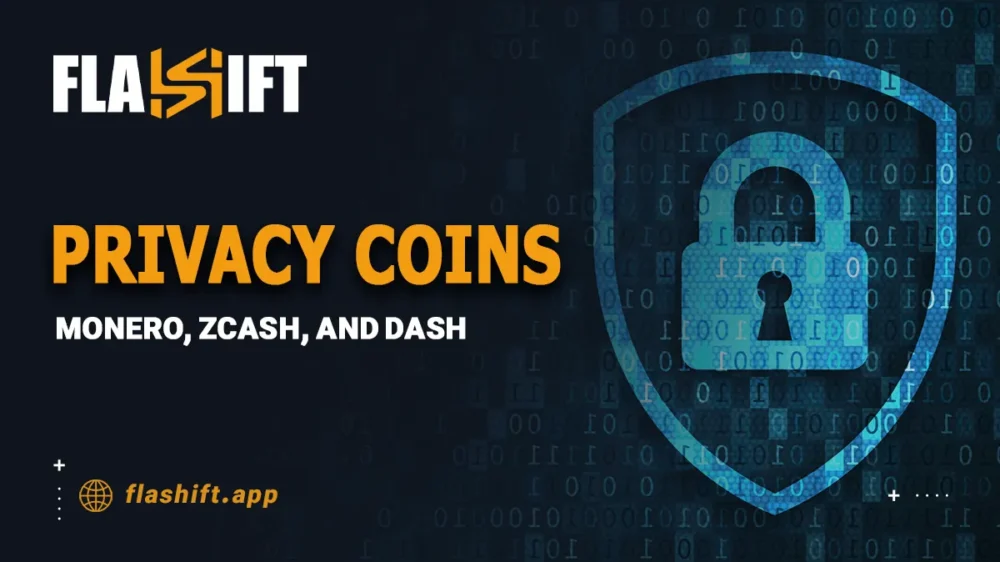- What Are Privacy Coins, and Why Do They Matter?
- Key Privacy Coins: Monero, Zcash, and Dash Features Compared
- Understanding Privacy Techniques: zk-SNARKs, Ring Signatures, and Mimblewimble
- zk-SNARKs: Zero-Knowledge Succinct Non-Interactive Argument of Knowledge
- Technological Innovations and Emerging Privacy Protocols
- Addressing Regulatory Concerns Through Technological Solutions
- Ring Signatures: Anonymity Through Group Signatures
- Mimblewimble: A Lean and Private Blockchain Protocol
- Privacy Coin Landscape and Future Prospects
- In Conclusion
- Legal Challenges and Regulatory Responses to Privacy Coins Worldwide
- FAQ
Privacy Coins Explained | Privacy coins are cryptocurrencies engineered to provide enhanced on-chain anonymity—using ring signatures, stealth addresses, and zero‑knowledge proofs to obscure sender, receiver, and transaction amounts. Unlike Bitcoin and Ethereum, which are pseudonymous, privacy coins offer a higher degree of transaction confidentiality.
In 2025, these coins are gaining renewed attention amid evolving privacy technologies, but they’re also facing increased regulatory scrutiny, with many exchanges delisting them over AML concerns. This guide includes how they work, top examples, use cases, and the legal landscape shaping their adoption.
What Are Privacy Coins, and Why Do They Matter?
Privacy coins are a class of cryptocurrencies specifically engineered to maintain anonymity not only about the identity of their users but also, crucially, about each given transaction. Unlike regular cryptocurrencies, like Bitcoin, whose transactions are visibly recorded on the blockchain, privacy coins employ advanced cryptographic methods to cloak data about the actual transaction, offering increased financial privacy.
This means that the sender, the recipient, and the amount being sent in a given transaction are hidden or “shielded” from public view, adding a layer of anonymity. Skimming through the well-known privacy coins, such as Monero, Zcash, and Dash, it is clear that their architecture incorporates specific protocols and technologies to ensure confidentiality for the users of these cryptocurrencies. This lets them conduct transactions with complete assurance that their financial history will not be at risk of exposure.
Today, in the digital economy, financial privacy is a highly valued virtue. However, the debate over transparency in traditional cryptocurrencies has become a contention among people and companies who faithfully keep their financial transactions private. This may be because privacy coins offer solutions for individuals to maintain control over their financial data and minimize exposure to third parties who may misuse or track their information.
Read More: Dash vs Zcash in 2025: Which Privacy Coin Offers Real Anonymity?
Why Do Privacy Coins Matter?
This will go a long way in helping users maintain their financial independence and sovereignty. Such coins, for instance, are of great value to people residing in areas characterized by strict financial regulations or with high levels of financial surveillance. That said, the cool thing about privacy coins is that they can also offer a safe, private way of transferring value in a freely monitorable or censored way.
Most importantly, the privacy coins are crucial to those companies that place a high price on data security. Consequently, they can protect sensitive financial transactions, client information, and contract details. For many users, this feature of privacy coins is more than just concealing transaction information; it is an inherent right to personal privacy and freedom in today’s world, which is made of glass by digital transparency. Privacy coins let individuals and enterprises achieve that degree of financial privacy, which is quite challenging with conventional cryptocurrencies.
Read More: How to Safeguard Your Cryptocurrency Investments: A Complete Guide
Key Privacy Coins: Monero, Zcash, and Dash Features Compared
Privacy coins are one of the most promising ways of keeping confidential information about financial transactions in the crypto arena. Monero, Zcash, and Dash have emerged at the fore, each having their own way of handling user data protection. Each of the aforementioned cryptocurrency privacy coins has features and technologies that differ from one another in design to protect personal financial information from being shared. It is thus essential to consider how they differ from one another. This review discusses the singularities of each coin and then proceeds with their comparative analysis.

-
Monero (XMR)
Monero has often been described as the “gold standard” of privacy coins. Indeed, launched in 2014, it boasts a high degree of privacy. While Bitcoin writes every single transaction on a public ledger, called the blockchain, the blockchain of Monero obfuscates the details of a transaction and, therefore, is virtually untraceable. Here’s how this is achieved:
Swap Tether (USDTERC20) to Monero (XMR) in one second, with Flashift.
- Ring Signatures: Monero uses ring signatures that obscure the sender’s identity. A transaction on Monero mixes up the sender’s digital signature with those of other users, making it hard to tell where it originated. This method masks the sender without any permission or knowledge sought from the sender himself.
- Stealth Addresses: Monero sends and receives funds using stealth addresses. Every transaction is meant to be made with a different, single-use address. In this way, the actual recipient’s address remains hidden on the public ledger since only the sender and receiver would know where to route the transaction.
- Ring Confidential Transactions: Introduced in 2017, RingCT conceals the amount transferred in a Monero transaction. Coupled with ring signatures and stealth addresses, RingCT covers the full privacy layer to protect sender and recipient details and the amount transferred in the transaction.
-
Zcash (ZEC)
Zcash is a privacy coin developed in 2016 to allow users to choose between making transparent or shielded transactions. Like many other cryptocurrencies, this coin offers advanced cryptography to provide privacy for users, who can make their transactions public or private. Key features of the system include:
- Zk-SNARKs refer to Zero-Knowledge Proofs, which Zcash applies to check the integrity of transactions fully autonomously without disclosing any information in their details. This, in turn, permits “shielded” deals when the sender and recipient details are not shown except for the amount.
- Selective Transparency: No other cryptocurrency has as much flexibility as Zcash. Users can opt between transparency equal to that of Bitcoin and shielded-meaning private, assured through zk-SNARKs. This option appeals to users who may want to show transactions for compliance reasons or will get added comfort in knowing other transactions are kept private.
- Viewing Keys: Zcash allows the user to generate viewing keys, which enable a third party to view the transaction details without letting the third party control the funds. This feature is particularly valuable for auditing and regulatory purposes where partial transparency may be needed.
-
Dash (DASH)
DASH is another prominent privacy coin that emerged in 2014 as a fork of Bitcoin. Its view of privacy, however, is different from Monero and Zcash. In the case of DASH, privacy is optional, and it uses another method for concealing user information.
- PrivateSend: This is a privacy feature implemented in Dash that allows users to blur their transaction details by mixing up their funds with others. Actually, this process “hides” the source of those funds, further adding a degree of privacy to the Dash transactions.
- CoinJoin Technology: The idea behind CoinJoin, first proposed for Bitcoin, applies in principle to Dash’s PrivateSend. CoinJoin pools multiple users’ transactions into one transaction; it then becomes difficult to follow where the money came from for any of those individual users. PrivateSend works over a network of controller nodes on Dash, mixing the performed PrivateSend.
- InstantSend: Again, though unrelated explicitly to privacy, InstantSend by Dash bears mentioning here if only for fantastic speeds that enable near-instant transactions. It is widely used by any party looking for speed and privacy.
Privacy Coin Comparison: Monero vs. Zcash vs. Dash
To better understand how these privacy coins compare, let’s examine their unique features and pros and cons.
| Feature |
Monero |
Zcash | Dash |
| Privacy Level | High (default) | Optional (high when enabled) | Optional (moderate) |
| Privacy Mechanism | Ring Signatures, RingCT, Stealth Addresses | zk-SNARKs, Selective Transparency | PrivateSend (CoinJoin) |
| Transaction Traceability | Very Low | Very Low (when shielded) | Moderate |
| Flexibility | Fully private | Allows choice between private or transparent | PrivateSend is optional |
| Speed | Moderate | Moderate | Fast (InstantSend available) |
| Use Cases | High anonymity needs, illicit markets, personal privacy | Flexible use, regulatory compliance | Retail transactions, speed-focused |
Comparison Analysis
- Level of privacy and flexibility:
Monero is the only cryptocurrency that provides complete privacy out-of-the-box: all of its transactions are private, without any required action by the user. This makes Monero especially appealing to people for whom privacy is paramount. Zcash allows users to select between transparent and shielded transactions, balancing offering privacy and still conforming to regulatory demands. Dash offers optional privacy with the PrivateSend feature and is less privacy-focused than Monero or Zcash.
- Technology and Security:
Monero depends on ring signatures, stealth addresses, and RingCT for maximum security and privacy. Zcash’s zk-SNARKs are very secure cryptographically, but their shielded transactions are not default and are generally more computationally intensive. Dash uses the older CoinJoin method for its PrivateSend feature, which is considered reliable but is typically less secure than the advanced cryptographic techniques used in Monero and Zcash.
- Use Case and Transaction Speed:
Dash is the fastest because of its InstantSend feature, making it more suitable for everyday transactions. However, Monero and Zcash are slower than Dash but provide enhanced robust privacy, which is ideal for users requiring high anonymity. Zcash’s flexibility in viewing keys can be functional for users whose use cases require a blend of transparency and privacy for compliance purposes.
Conclusion
These three features make Monero, Zcash, and Dash somewhat unique in privacy coins. Monero is ideal for those seeking maximal privacy by default, while Zcash satisfies users whose needs involve a balance between transparency and confidentiality. With its speed and optional privacy, Dash is suited to retail transactions that need speed but still want privacy. Each privacy coin has its advantages, and thus, users can choose according to their needs related to privacy, flexibility, and transaction speed.
Read More: Comprehensive review of the top 3 anonymous cryptocurrencies.
Understanding Privacy Techniques: zk-SNARKs, Ring Signatures, and Mimblewimble
With the rise of these privacy coins, innovative cryptographic techniques have come into view that raise the bar for privacy and security in cryptocurrency transactions. This is contrary to traditional cryptocurrencies, where usually, every transaction is recorded on a public ledger and visible to all. Several cryptocurrencies- Monero, Zcash, and Grin- use various advanced cryptographic techniques to offer utterly private user information, transaction amounts, and wallet addresses.
Most notable are zk-SNARKs, Ring Signatures, and Mimblewimble. But how do these techniques work, and why do they matter in privacy coins? To understand how these privacy functionalities function, let’s look into three primary cryptographic methods that form the backbone of these privacy coins.

zk-SNARKs: Zero-Knowledge Succinct Non-Interactive Argument of Knowledge
zk-SNARK stands for Zero-Knowledge Succinct Non-Interactive Argument of Knowledge, a variety of zero-knowledge proof extensively applied in several blockchain protocols oriented toward ensuring privacy, like the widely known Zcash. In simple terms, zero-knowledge proofs allow one party to convince another that some statement is true without disclosing any information whatsoever about the statement. Zk-SNARKs take it higher to include efficiency in the proofs, and no further interaction between the prover and verifier is required other than at setup.
How zk-SNARKs Work in Privacy Coins
In zk-SNARKs, the proof process involves three steps:
- Prover generates proof: The prover constructs a cryptographic proof based on the transaction details (such as the balance and account information) without revealing any specifics.
- Verifier checks proof: The verifier can confirm the validity of the evidence without gaining access to sensitive information.
- Efficient verification: Since zk-SNARKs are “succinct” (very short), the verification process is fast, making them suitable for large-scale blockchain systems.
In Zcash, zk-SNARKs ensure that transactions are verified on the blockchain without disclosing any transaction details, guaranteeing complete privacy for the sender, receiver, and amount transferred.
Pros and Cons of zk-SNARKs
Pros:
- Strong privacy guarantees: No transaction data is revealed.
- Efficiency: Verification is quick and does not require significant computational resources.
Cons:
- Trusted setup: zk-SNARKs initially required a trusted setup phase, which has been a point of contention due to potential security risks.
- Complexity: Implementation and understanding of zk-SNARKs require advanced cryptographic expertise.
Technological Innovations and Emerging Privacy Protocols
Privacy coins continuously evolve through innovative technological advancements to enhance user privacy. One such development is the introduction of zk-STARKs, which offer advantages over zk-SNARKs by eliminating the requirement for a trusted setup, thereby increasing security. Additionally, the concept of Zero-Knowledge Rollups is gaining traction, wherein privacy and scalability are enhanced through roll-up technology, allowing private transactions to be aggregated on the blockchain’s main layer.
Addressing Regulatory Concerns Through Technological Solutions
As privacy coins grapple with stringent regulatory scrutiny, developers are innovating to bridge the gap between privacy and compliance. The emergence of self-regulatory features, such as selective disclosure and viewable transaction trails, promises a balanced approach. With such features, users can voluntarily disclose transaction details to specific third parties for compliance reasons while retaining control over which aspects of the transaction are shared.
Ring Signatures: Anonymity Through Group Signatures
Ring signatures have become the main attribute of privacy cryptocurrencies, including Monero. This approach, invented in 2001 by MIT scientists, is based on group signatures. Consequently, a ring signature provides the anonymity of a transaction, enabling a sender to sign a transaction on behalf of a group. In this way, it becomes impossible for outside observers to ascertain which particular member of the group initiated this given transaction.
How Ring Signatures Work in Privacy Coins
- Ring Generation: In a ring signature system, the signer chooses a certain number of public keys of previous transactions to form a “ring.” It will mask the key of the actual sender among the ring of possible keys.
- Signature Generation: Eventually, a ring signature is generated that hides the identity of the actual signer but shows that one of the group members has signed the transaction.
- Anonymity Guaranteed: Observers can’t determine which public key was utilized in creating the signature, lending an extremely high degree of anonymity to transactions.
Ring Confidential Transactions add additional transaction privacy within the Monero protocol, where ring signatures are implemented along with stealth addresses that anonymize the recipient.
Pros and Cons of Ring Signatures
Pros:
- It is impossible to identify the sender within a group.
- Monero’s use of ring signatures is efficient enough for high transaction volumes.
Cons:
- Large ring sizes increase transaction size, leading to higher storage requirements.
- Monero has periodically updated its protocol to improve the effectiveness of ring signatures against tracking techniques.
Mimblewimble: A Lean and Private Blockchain Protocol
It is called Mimblewimble, a spell from the Harry Potter books. The privacy coins Grin and Beam implemented it. Unlike other methods of ensuring privacy, which introduce additional cryptographic elements on top of existing blockchain structures, Mimblewimble reimagines the blockchain in the minimum form to achieve confidentiality and scalability.
How Mimblewimble Works in Privacy Coins
- No Addresses: Mimblewimble has no notion of addresses; instead, the protocol handles “blinded” transactions. Each transaction input and output is encrypted, and only the transacting parties know the amounts being moved.
- Aggregation of Transactions: Mimblewimble transaction offers aggregation; hence, numerous transactions are summarised, reducing blockchain size since redundant data would be eliminated to a minimum.
- Cut-Through Mechanism: This allows for further scalability by removing no longer required data. In simple terms, if two parties have a transaction, only the net effect is recorded, reducing the blockchain’s size and increasing privacy.
In essence, Mimblewimble provides privacy and has a much smaller blockchain size, making it more scalable than traditional blockchain protocols.
Pros and Cons of Mimblewimble
Pros:
- Reduces blockchain size and data storage requirements.
- Transaction details are not visible to observers.
Cons:
- Mimblewimble’s structure does not support more complex scripts, which limits smart contract functionality.
- Due to the unique design, auditing and verifying Mimblewimble transactions require advanced knowledge.
Privacy Coin Landscape and Future Prospects
Privacy coins still face challenges due to regulatory scrutiny and technical hurdles. Governments and regulation bodies are also concerned about the illegal activities transacted using these privacy coins. Consequently, some exchanges have delisted them, and even countries have entirely banned them. The demand for confidentiality of financial transactions is nevertheless high. This is where users believe in privacy and freedom from surveillance. Recent cryptographic research developments achieve new capabilities and include the following:
- zk-STARKs: This newer variant of zk-SNARKs does not involve a trusted setup and is much more secure.
- RingCT (Ring Confidential Transactions): An improvement of elemental ring signatures employed in Monero; it also conceals the amount in a transaction.
In Conclusion
Privacy coins are a paradigm shift in how users approach cryptocurrency confidentiality, and zk-SNARKs, Ring Signatures, and Mimblewimble represent three foundational techniques behind this paradigmatic shift in attitude. While each method has strengths and weaknesses unique to its nature, they all work toward one similar goal: increasing transactional privacy. As these technologies evolve within privacy coins, these methods may see further innovation and adoption, though they will also face scrutiny from regulators and privacy advocates alike.
Read More: Understanding Blockchain Technology: The Backbone of Cryptocurrencies
Legal Challenges and Regulatory Responses to Privacy Coins Worldwide
Privacy coins, designed to value the anonymity and confidentiality of their users’ cryptocurrency transactions above all else, have been the source of extensive interest by governments and regulators worldwide. While privacy coins like Monero, Zcash, and Dash provide robust solutions for private transactions, concerns about the misuse of these currencies in money laundering, tax evasion, and other illicit activities have resulted in several regulatory responses. From outright bans to regulatory frameworks that strive to balance user privacy with compliance with financial regulations, different countries have adopted various approaches.

-
The Legal Concerns Surrounding Privacy Coins
Anonymity and Privacy vs. Financial Transparency
Privacy coins inherently work on ground principles of anonymity and confidentiality that contradict any regulatory body’s preference for financial transparency. Anti-money laundering and counter-terrorism financing regulations typically require transparency to identify suspicious transactions. Privacy coins challenge this regulatory standard since tracing funds back to individuals is difficult.
Illicit Use Cases
Regulators claim this can be utilized to abet criminal activities since traces of it are impossible. Privacy-based cryptocurrencies have been used on darknet markets, making the tracing and investigating transactions harder by law enforcement. The issue has become a focal point for governments concerned that untraceable cryptocurrency transactions can enable money laundering, drug trafficking, and cybercrime.
Risks of Tax Evasion
Tax agencies, including those of the United States, namely the Internal Revenue Service, are very concerned, for some reason, that such digital currencies, otherwise called ‘privacy coins,’ could be used for tax evasion. In addition, the lack of traceability will make it very difficult to determine taxable gains or losses, raising concerns about compliance with crypto tax laws.
-
Global Regulatory Responses to Privacy Coins
United States
The United States has generally taken a skeptical approach toward privacy coins, with various enforcement actions and some regulatory guidance around discouraging their use. FinCEN requires all VASPs to comply with AML/CTF laws. These rules compel exchanges and businesses that use cryptocurrencies in some way to report any transactions above a threshold amount, which makes it rather hard to offer privacy coins.
- Delisting of privacy coins: A few US-based on-chain exchanges, such as Coinbase and Bittrex, have started to remove privacy coins from their users’ listings as a preventive measure against regulatory penalties.
- Tax Office Focus: The IRS had invested in blockchain forensic tools and partnerships with companies like Chainalysis and Elliptic to trace transactions. To pursue the more difficult ones, such as Monero, it even offered bounties for facilitating technology that can trace privacy coins.
European Union
The European Union has taken a balanced but cautious approach through, inter alia, its Fifth and Sixth Anti-Money Laundering Directives, AMLD5 and AMLD6, respectively. Both aim to bring cryptocurrency exchanges and wallet providers under AML/CTF regulations, although member states interpret this differently, and the implementation varies.
- Crypto Regulation: If the proposed Markets in Crypto-Assets Regulation, or MiCA, becomes a reality, it may put additional scrutiny on the transactions of privacy coins. For this, MiCA will ask for any transaction involving a privacy coin to be made public and force strict Know Your Customer policies in their direction.
- France and the Netherlands: France and the Netherlands have adopted very restrictive stances. While France has enforced strict KYC requirements, the Dutch government even weighed in with calls to ban the privacy coins altogether due to the threat they cause to public safety.
Japan
Japan has been one of the harshest countries in protecting privacy coins. After security incidents and worries about money laundering that rained in 2018, the Financial Services Agency, FSA banned the listings of Monero, Zcash, and Dash by cryptocurrency exchanges.
Japan has quite strict AML legislation, and its regulators have come to believe that privacy coins are a risk they do not want to take. In response, the exchanges have mainly bowed to these pressures, removing their privacy coins from listing and continuing to operate in Japan.
South Korea
It has strictly banned private currency transactions for all exchanges within its borders. The FSC had implemented this rule in 2021, asking exchanges to delist the so-called “privacy coins” or face penalties.
The fact that South Korea has been enforcing “real-name” cryptocurrency trading rules directly contradicts the concept of anonymity associated with the nature of privacy coins; hence, there is a strong stance against them.
Australia
Australia has adopted a crypto exchange-only regulatory approach. According to AUSTRAC, exchanges should register themselves and fully adhere to AML/CTF regulations regarding filing suspicious transaction reports.
The result of this pressure is that privacy coins have been delisted from Australian exchanges, including Coinspot and Independent Reserve, because of the compliance-first approach, as opposed to an actual ban of those coins from individual ownership.
Russia and China
Russia and China are big global players with ambiguous positions concerning privacy coins. Although neither has banned any privacy coin, their overall crypto policies discourage users from using them.
- Russia: Recently, Russia passed cryptocurrency regulations, including a provision requiring users to declare crypto holdings for tax purposes, which is very hard to execute with privacy coins.
- China: The recent complete ban on cryptocurrency transactions and mining in China included, by implication, privacy coins, even though the ban focused on mainstream cryptocurrencies and stablecoins.
-
Emerging Approaches and Solutions
The FATF’s “Travel Rule”
Another intergovernmental organization with a significant emphasis on standards for AML is the Financial Action Task Force. It issued the so-called “Travel Rule” in 2019, requiring financial institutions to attach certain identifying information to each cryptocurrency transaction. The rule has been painful for the dealings of privacy coins, accelerating innovation around privacy technology in search of a balance between anonymity and regulatory compliance.
Self-Regulatory Initiatives by Exchanges
While this may be some pressure release, some exchanges have tried to appease the regulators by voluntary self-regulation in various ways. A simple example could be how some exchanges add verification for users who want to trade in privacy coins, restricting access to verified users only. This may be a way to balance risks without outright banning privacy coins.
Development of Traceability Tools
Companies offering blockchain forensics, such as Chainalysis and CipherTrace, continuously develop tools focused on tracing and analyzing transactions on private coin networks. For example, CipherTrace has developed specific tracing tools for Monero, which, while still in their infancy, signal a potential trend toward “traceable privacy.”
The Potential of Regulations Around Privacy Coins
There is also an increasing trend toward “selective disclosure” features, where, with the increasing maturity of privacy technology, users can voluntarily disclose details of their transactions to third-party entities. Such facilities would ensure necessary oversight by regulators while preserving the privacy of these individuals. Indeed, zk-STARKs, a new type of emerging successor to zk-SNARKs, is one possible direction, given that it offers strong cryptographic guarantees without needing a trusted setup.
-
The Future of Privacy Coins in a Regulated World
Regulatory challenges and technological strides mark the path of privacy coins. Features that could be seen are:
- Hybrid Privacy Models: Future versions of privacy coins may inculcate hybrid models, wherein users can switch between privacy and transparency or selectively show transaction details.
- Increased Scrutiny: Governments will continue changing with time, and the legislation surrounding privacy coins will only get tighter; this includes demands on exchanges and wallet providers for deeper KYC.
- Continued Innovation: More importantly, privacy-centric projects are innovating on cryptographic techniques to improve privacy while offering regulatory compliance if needed. Zero-knowledge proof-based compliance models are one such example.
In Summary
Legal challenges and regulatory responses to privacy coins are indeed a tightrope walked between financial privacy and regulatory compliance. While there has been pushback against certain jurisdictions regarding privacy coins, the development of technological innovations such as zk-SNARKs, Ring Signatures, and Mimblewimble continues to evolve, pushing the envelope on what is possible for private and secure transactions. This ever-changing world of regulations will no doubt spur further adaptations by privacy coins in this ongoing dialogue between privacy advocates and regulatory bodies worldwide.
FAQ
- What are privacy coins?
Privacy coins are cryptocurrencies designed to cloak transaction information and maintain user privacy.
- Why do privacy coins matter?
They offer infinitely better financial privacy, keeping users from surveillance and allowing them to execute confidential transactions.
- How does Monero differ from Zcash and Dash?
Monero implements ring signatures, while Zcash utilizes zero-knowledge proofs known as zk-SNARKs. Dash offers an elective PrivateSend through coin mixing.
- Which of the following is considered the most private of the privacy coins?
Monero has the most solid privacy because all transactions are private by default.
- What is zk-SNARK?
Zk-SNARKs are zero-knowledge cryptographic proofs that verify facts about transactions without revealing their details and are utilized in Zcash.
- How do Ring Signatures and Mimblewimble work?
Ring Signatures masks the people who sent the coins, joining many into one transaction, while Mimblewimble masks the addresses and compresses data.
- Is it legal to own privacy coins?
They are all legal; however, legality does vary: some countries ban or restrict them, while others permit them on the condition that they are regulated.
- Why do regulators put restrictions on privacy coins?
Because they make tracking difficult and raise concerns over money laundering and tax evasion.







